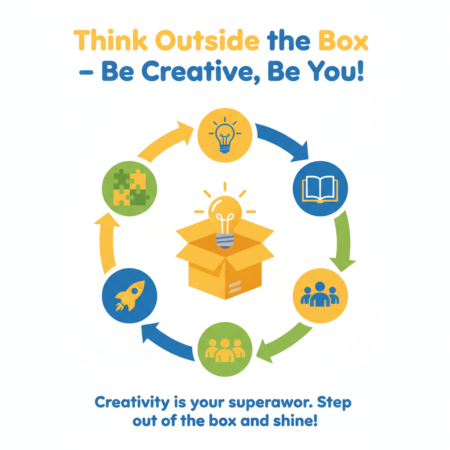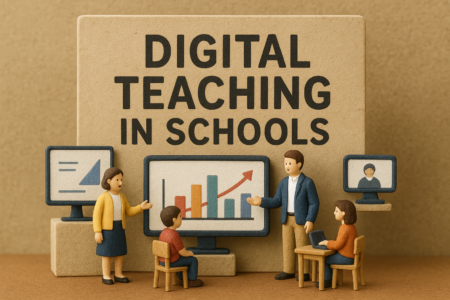Introduction
In life, we encounter challenges that can either hinder or propel us forward. Essential to this journey is the idea of a growth mindset – the belief that our abilities can evolve through effort and persistence. This post delves into the significance of nurturing a growth mindset for personal growth and achievement, illustrating how adopting this perspective can unleash our potential for continuous improvement.
Understanding Growth Mindset
Growth mindset is about believing in the power of effort and perseverance to improve oneself. Unlike a fixed mindset, which assumes that intelligence and talents are innate and unchangeable, a growth mindset acknowledges that skills and abilities can be developed over time through hard work and determination. It’s like seeing challenges as opportunities to learn and grow, rather than obstacles that define our limits. By embracing a growth mindset, we open ourselves to the possibilities of continuous improvement and personal development.
Benefits of a Growth Mindset
- Openness to Feedback:
Willingness to accept feedback and use it constructively to improve. - Adaptability:
Ability to adapt to new situations and embrace change as an opportunity for growth. - Higher Achievement:
Greater likelihood of achieving long-term goals due to a persistent pursuit of improvement. - Increased Confidence:
Confidence in one’s ability to learn and grow, leading to higher self-esteem. - Empowerment:
Feeling empowered to take control of one’s own learning and development journey. - Better Relationships:
Building stronger relationships through a shared focus on growth and support for each other’s aspirations.
Strategies for Cultivating a Growth Mindset
- Embrace Challenges:
Instead of avoiding challenges, see them as opportunities to learn and grow. Approach them with a positive attitude and view setbacks as part of the learning process. - Persist Through Obstacles:
When faced with obstacles or setbacks, persevere and keep pushing forward. Remember that setbacks are temporary and can be overcome with effort and determination. - Seek Feedback:
Be open to feedback from others and use it as a valuable tool for improvement. View feedback as constructive guidance rather than criticism, and use it to identify areas for growth and development. - Practice Self-Reflection:
Take time to reflect on your experiences, strengths, and areas for improvement. Identify any negative thought patterns or self-limiting beliefs and work on reframing them into more positive and growth-oriented perspectives. - Cultivate Curiosity:
Foster a sense of curiosity and a desire to learn new things. Explore new ideas, seek out new challenges, and approach learning with a sense of wonder and excitement. - Celebrate Effort and Progress:
Focus on the effort you put in rather than solely on the outcome. Celebrate your progress and achievements along the way, no matter how small, and recognize the value of continuous improvement.
By incorporating these strategies into your mindset and daily practices, you can develop a growth mindset that will not only support your academic endeavors but also contribute to your overall personal growth and success.
Nurturing a Growth Mindset in Different Areas
Academics:
Approach learning with a growth mindset by seeing challenges as opportunities to expand your knowledge and skills. Embrace mistakes as part of the learning process and persist in your studies even when faced with difficulties. Seek out resources and support to help you overcome academic obstacles and continually strive for improvement.
Career:
In your professional endeavors, adopt a growth mindset by viewing challenges as opportunities for skill development and advancement. Embrace new responsibilities and projects as chances to learn and grow in your career. Seek out feedback from colleagues and supervisors to identify areas for improvement and actively pursue professional development opportunities to enhance your skills and knowledge.
Relationships:
Apply a growth mindset to your relationships by recognizing that they require effort and growth to thrive. Approach conflicts and disagreements as opportunities for communication and understanding rather than as obstacles. Be open to feedback from loved ones and strive to learn and grow together as a couple or as part of a family unit.
Personal Goals:
When setting personal goals, cultivate a growth mindset by focusing on progress and improvement rather than perfection. Break down your goals into smaller, manageable steps and celebrate each milestone along the way. Embrace setbacks and challenges as opportunities for learning and growth, and use them to propel you forward towards achieving your aspirations.
Overcoming Common Challenges
Fear of Failure:
Instead of fearing failure, reframe it as a natural part of the learning process. Understand that setbacks and mistakes provide valuable opportunities for growth and learning. Embrace challenges and view them as chances to stretch your abilities and expand your skills. Focus on the progress you make rather than dwelling on any setbacks along the way.
Self-Doubt:
Challenge negative self-talk and replace it with positive affirmations that affirm your abilities and potential for growth. Recognize that everyone experiences moments of doubt, but it’s important not to let them hold you back. Practice self-compassion and remind yourself of past successes to boost your confidence in your abilities. Surround yourself with supportive individuals who believe in your potential and can offer encouragement when needed.
Comparison Trap:
Avoid comparing yourself to others and instead focus on your own journey of growth and development. Recognize that everyone’s path is unique, and what works for someone else may not necessarily work for you. Celebrate your progress and achievements, no matter how small, and appreciate the efforts you’re making towards your goals. Stay focused on your own growth trajectory and trust in your ability to succeed at your own pace.
Cultivating a Growth Mindset in Practice
- Embrace Challenges:
Challenge yourself to try new things and step out of your comfort zone. Start with small challenges and gradually work your way up to bigger ones. Whether it’s learning a new skill, tackling a difficult problem, or taking on a leadership role, each challenge presents an opportunity for growth and learning. - Learn from Setbacks:
Instead of seeing setbacks as failures, view them as valuable learning experiences. Reflect on what went wrong, what you can learn from the experience, and how you can improve in the future. Use setbacks as motivation to keep pushing forward and striving for progress. - Seek Feedback:
Welcome feedback from others as an opportunity for growth and improvement. Actively seek out constructive criticism and use it to identify areas where you can grow and develop. Be open to feedback, even if it’s difficult to hear, and use it as a catalyst for positive change. - Develop a Growth Mindset Mantra:
Create a mantra or positive affirmation that embodies the principles of a growth mindset. Repeat this mantra to yourself regularly, especially when facing challenges or setbacks. For example, “I embrace challenges as opportunities for growth,” or “I believe in my ability to learn and improve over time.” - Celebrate Progress:
Celebrate your progress and achievements, no matter how small. Take time to acknowledge your efforts and recognize how far you’ve come on your journey of growth and development. Celebrating progress helps to reinforce the belief that your efforts are paying off and motivates you to keep pushing forward.
Conclusion
Fostering a growth mindset is crucial for ongoing improvement and success. By embracing challenges, learning from setbacks, seeking feedback, and celebrating progress, you can develop resilience and determination. Adopting a growth mindset is about embracing self-discovery and personal growth. So, I encourage you to embrace this mindset and embark on the journey of continuous improvement with confidence.







